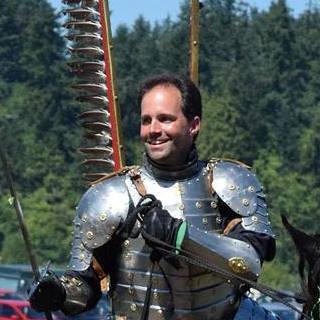I remember those words from college. A friend of mine (Tom Rhyne) said them to me the summer after my Junior year. I’ve carried those words with me for 18 years and counting.
At the time I took it as a disappointment. As a reflection of the fact that I had flaws, which I shouldn’t have. That I should be better, that I should work harder to be perfect and work harder at eliminating those flaws—of which I had and do still have many. I used that as motivation to strive harder, to push myself through rough times and keep on going in an attempt to be better.
I’ve also used it as an excuse to push people away and to bury stuff inside. Because it was more important to me that people saw the shiny armor rather than the cracks. Because—I believed—that’s what they needed or what they wanted to see. That was a form of strength. That was being a rock that people could cling to. That was being inspiration that helped others strive forward. That was being something that was helpful to others.
I frequently have debates with myself about admitting any form of weakness, even to my closest friends. It feels like burdening. It feels like putting stress on them. Their problems come first and it is more important that they know they have something they can cling to. Not to mention that our society strongly instills in us this desire to be independent, to be strong, that so many things are a weakness and that weakness is bad. In short, you always need to be “on”.
And I believe that gets magnified especially with social media. There is this desire to always post the good, the smart, the engaging, the uplifting. It is a case of putting your best foot forward and making sure that you are recognized for the awesome person you are.
It’s not quite an illusion. It isn’t a lie. You are still this person. It just isn’t the whole picture. It isn’t everything. There are parts that are buried that are hidden. But that doesn’t make it untrue. And on some days, it very much is true. On other days, you just gloss over the ugly bits.
Because I am familiar with this, I try very hard to be aware of it with others. Often times—not always—the people who are smiling the most, who are doing the most, who are never showing a negative side; they carry scars and chinks in their armor that they aren’t comfortable with showing. I deliberately try to look for those chinks, not to just gloss over them like it is so easy and so common to do. I make a concentrated effort to do this because they must be there. Maybe I do it because I want to be reassured that I’m not failing as much as I feel I am with my own flaws? Entirely possible that is the selfish motivation.
But here’s the key. Seeing them is important, but don’t call attention to them. I’ve learned that not everyone likes light shined on those imperfections. Some people do. Some will appreciate it and thank you for it. But for some, it will just be driving a knife into that opening. It’s different for each person, I think. And even then, it can be different for every flaw.
But I think by being aware of them, by looking for them, and realizing that they are there, I think that is important and a way to support those “knights in shining armor”. Because even rocks need a foundation to stand upon, and it doesn’t matter how big a rock is when waves keep crashing against it.
Erosion still happens.

 RSS Feed
RSS Feed
